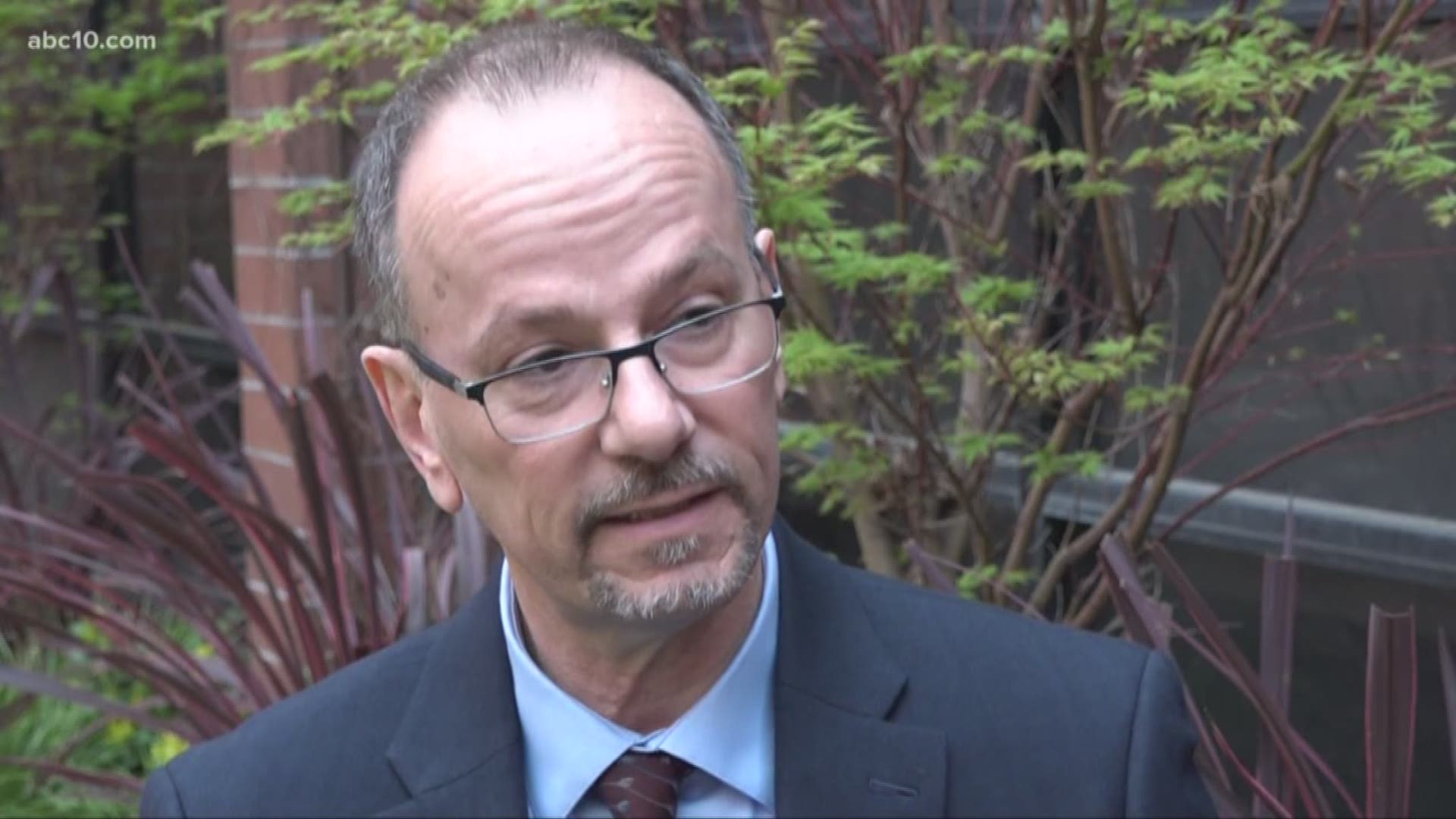SACRAMENTO, Calif. — Sadly, suicide has been in the news lately. Two teens who survived the Stoneman Douglas High School shooting last year in Parkland, Fla. and the father of a girl killed in the Sandy Hook Elementary School shooting in Newtown, Conn. in 2012 all died from suicide in recent days.
In fact, national data show suicide rates have been on the rise since the late '90s. But a local doctor at UC Davis Health is working with the U.S. Centers for Disease Control and Prevention (CDC) to stop that.
Dr. Anthony Jerant is nearing the end of a four-year study funded by the CDC. He’s the chair of professor within the UC Davis Department of Family & Community Medicine.
“The stigma around suicide is even stronger than we expected,” he told ABC10. “I think we’re with suicide where we were with depression about 30 or 40 years ago. I think we’ve done a lot as a society to destigmatize depression. People now know it’s a medical thing, you know, there’s treatment for it. Not so much with suicide, unfortunately.”
He wants to take the stigma out of talking with your primary care doctor about thoughts of suicide.
“We have a lot of work to do as a society to normalize the idea that lots of people feel this, there’s treatment, it’s nothing, you know, to be ashamed of,” Jerant said.
While suicide rates have been on the rise, they’re especially high for middle-aged men.
Jerant said the rate increase is tied to an economic downturn, and men within that age group traditionally and historically have played the role of a family’s provider. While the roles of men and women in the workplace have become more equal, Jerant said the idea of “man as provider” is still prevalent in our society. A sluggish economy and decreased ability to make money, he said, is tied to rising suicide rates within men ages 35 to 75.
RELATED:
"California, the overall (suicide) rate is about 10 per 100,000. In Sacramento, it's higher than that. It's about 14 per 100,000, so we're one of the counties where it's above the state average,” Jerant said. “If you look at some of the surrounding rural counties, it's even higher: Placer, El Dorado, Amador it's 30 per 100,000."
When broken down by sex, California’s suicide rate for men is more than three times that of women, at 18 per 100,000 compared to 5 per 100,000.
Jerant’s program aims to prevent suicide early, through a man’s primary care doctor.
"We developed our approach, and it's called Men and Providers Preventing Suicide, or MAPS, specifically to target prevention of suicide in the primary care office setting,” Jerant said. “Half of all people who do end up killing themselves have seen a primary care doctor within the month before they do that.”
The program includes an interactive app a patient will receive on a touchscreen device, as he’s waiting for his appointment with his doctor.
The program “encourages them - if they do endorse that they're having suicide thoughts - to talk about it with the doctor right in that visit,” Jerant said. “It includes some videos that actually role model men of different races and ethnicities in that middle-aged group talking to a doctor about suicide, because a lot of research shows that men sometimes lack the words to talk about medical issues in general but mental health issues for sure, so it kind of gives them the chance to see how it's done.”
In a video provided to ABC10 by UC Davis Health, an actor portraying a patient looks into the camera and says, “telling my doctor clearly and directly that I was thinking of killing myself worked really well. No hinting or beating around the bush required. Right away, it got me on the road to managing my situation."
Suicide is discussed in these videos is a very specific way, Jerant said.
“Messages that tell men to ask for help tend not to go over very well,” Jerant said. “Research has shown that they respond better to messages that play to things like, 'This is a good way to take charge of your health. This is a good way to show that your commitment to your family and your loved ones and be there for them,' so the messages are really framed more in that way, rather than saying, 'You need help.'"
That same actor also says to the camera, “I encourage you to take the same kind of clear, direct approach today in talking with your doctor about your health and life situation, including your recent thoughts of suicide."
Dr. Jerant will complete his study later this spring. If results show that the program successfully encouraged men to talk to their doctors, then it could be used in doctors’ offices across the country and even adapted for other groups, such as women and teens.
If you or a loved one are thinking about suicide, help is available right now, 24/7. You can call 1-800-273-8255.
________________________________________________________________
Watch the FULL INTERVIEW with Dr. Anthony Jerant.
Continue the conversation with Becca on Facebook.

